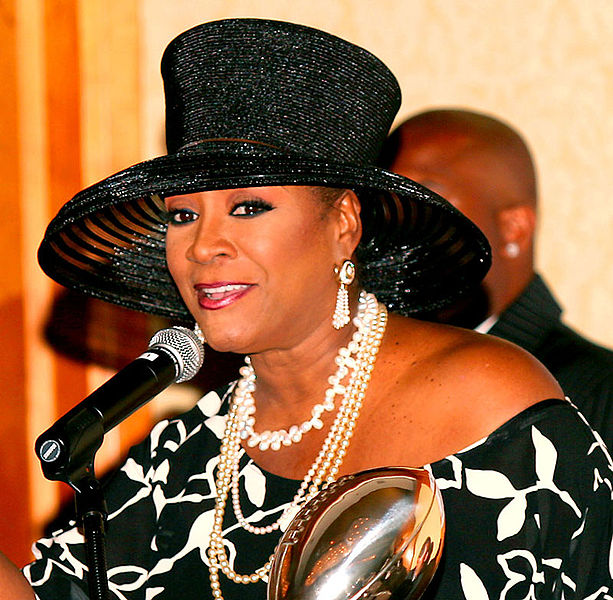Patti LaBelle and Adoption
Biography
1944 -
Singer
LaBelle was an American disco group, melding dance music with funk and glam rock, resulting in such memorable songs as "Lady Marmalade". The group was led by Patti LaBelle, who later had a successful solo career. Nona Hendryx, Sarah Dash and Cindy Birdsong rounded out the group, with Hendryx especially notable as a prolific songwriter.
Patricia Louise Holt (soon to be known as Patti LaBelle) and Cindy Birdsong first formed a group called the Ordettes in Philadelphia, Pennsylvania. In 1962, Nona Hendryx and Sarah Dash joined after leaving a group called the Del Capris.
Patricia Holt then changed her name to Patricia LaBelle to match the group's official name, the BlueBelles. The first single was "I Sold My Heart to the Junkman" (released as the Blue-Belles). Some controversy exists over if the group actually performed on the track; some believe that the song was performed entirely or partially by the Starlets. The song was a hit, as was their 1963 follow-up, "Down the Aisle", and "You'll Never Walk Alone" (1964; Rodgers & Hammerstein) and "Danny Boy" (a traditional Irish folk song). The BlueBelles signed with Atlantic Records in 1965, releasing "Somewhere Over the Rainbow" and "Groovy Kind of Love" (later a hit for the Mindbenders and Phil Collins) with only mild success.
In 1967, the group became a trio after Cindy Birdsong left to join the Supremes, replacing Florence Ballard. Three years later, the group lost their contract and hired Vicki Wickham, a British TV producer, to remake their image. She changed the name to LaBelle and pushed the group to a more contemporary sound, incorporated glam influences, particularly in the spectacular spacey stage costumes that included large amounts of glitter, feathers and other acoutrements. LaBelle opened for the Who and assisted with Laura Nyro's Gonna Take a Miracle in 1971. LaBelle released LaBelle in 1971 on Warner Brothers Records; it included covers of the Rolling Stones, Kenny Rogers, Carole King and Laura Nyro, while the following album, Moonshadow (1972) included covers of Cat Stevens and the Who, as well as an increasing amount of Hendryx material. After the albums flopped, Hendryx wrote most of their third album, Pressure Cooking (1973), released on RCA Records.
After Pressure Cooker, LaBelle signed with Epic Records and recorded an album, Nightbirds, with Allen Toussaint, a famous record producer. "Lady Marmalade", a sexy, funky disco song (with an come-hither French chorus, "Voulez-vous coucher avec moi?") about a New Orleans prostitute became a massive hit in 1975 and one of the first mainstream disco hits (Jones and Kantonen, 1999). The success of the single also pushed the album to the top of the charts.
LaBelle never regained their former momentum after Nightbirds and "Lady Marmalade", in spite of several hits and some critically acclaimed albums like Phoenix (1975) and Chameleon (1976). When the group split up in 1976, Hendryx and LaBelle managed successful solo careers, while Sarah Dash released several failed albums and ending up working as a backup singer for bands like the Rolling Stones.
During the 1980s and 1990s, Patti LaBelle proved herself to be a legend in the making. She made her way to the top of the charts with the hits "New Attitude", love ballad "If Only You Knew" and a duet with Michael McDonald "On My Own". In 1986, her album "The Winner In You" went platinum. In 1992, Patti received her first Grammy award for her album "Burnin." She also is the author of three books, one including her autobiography and two cookbooks. 1998's "Live: One Night Only" earned Patti her second Grammy award.
Patti LaBelle has had the world rocking along with her for over 30 years. With hit songs,several awards, etc. under her belt, she still stresses she is no different than anyone else, besides the fact that she makes records. LaBelle is Mom to one teenaged boy, two adopted sons and the son and daughter of her late sister Jackie.
References
This article is licensed under the GNU Free Documentation License. It uses material from the Wikipedia article "Patti LaBelle".
Credits: Wikipedia
